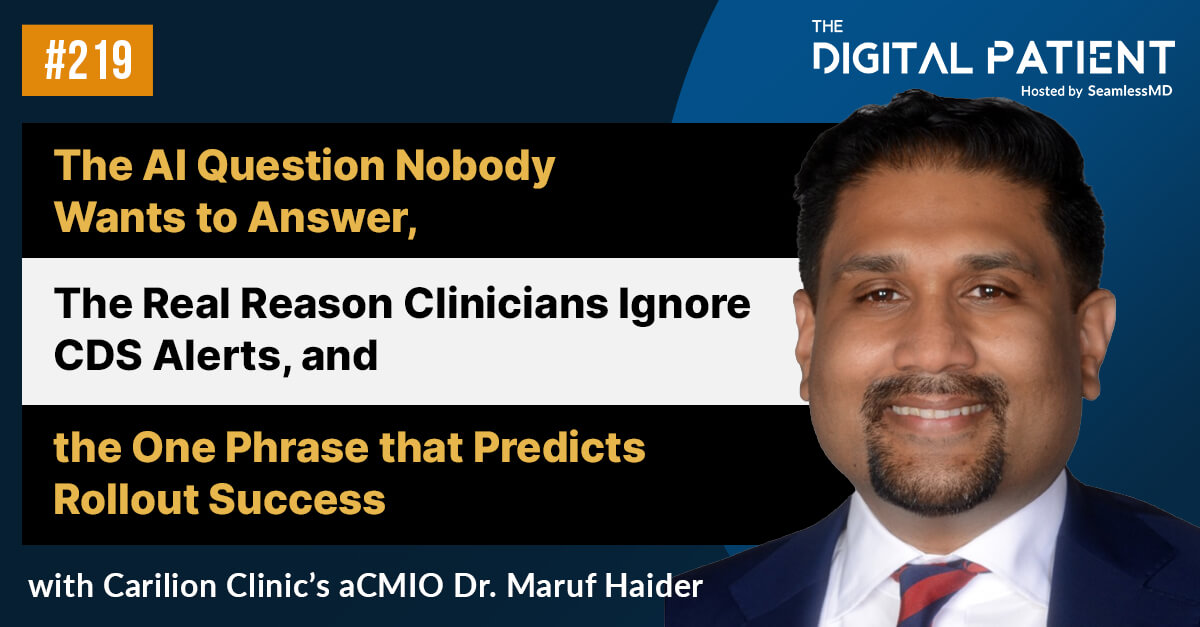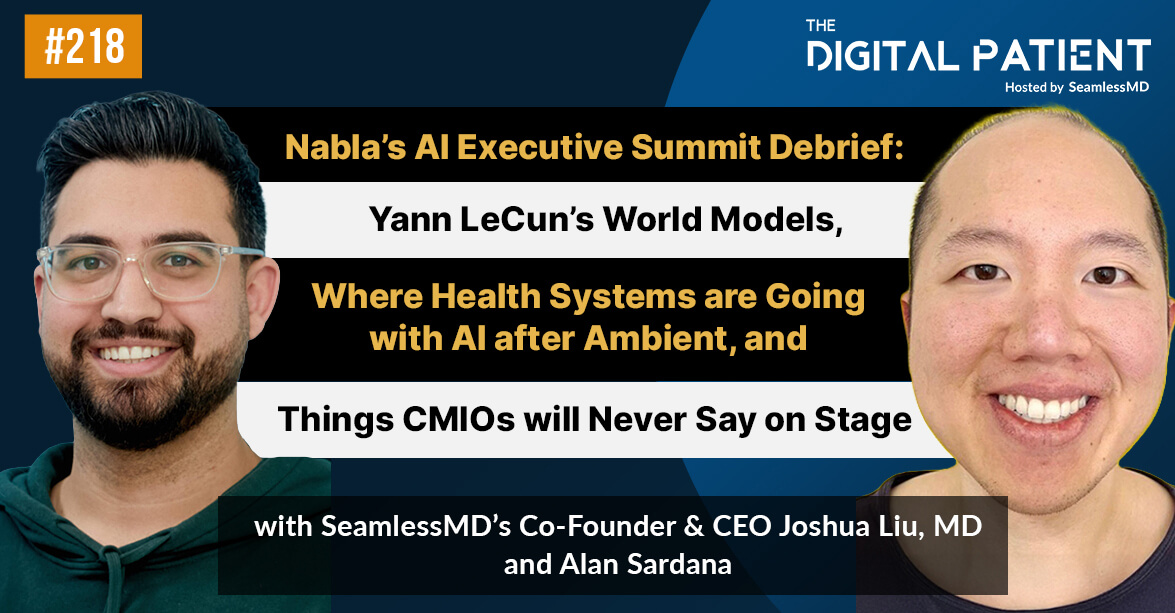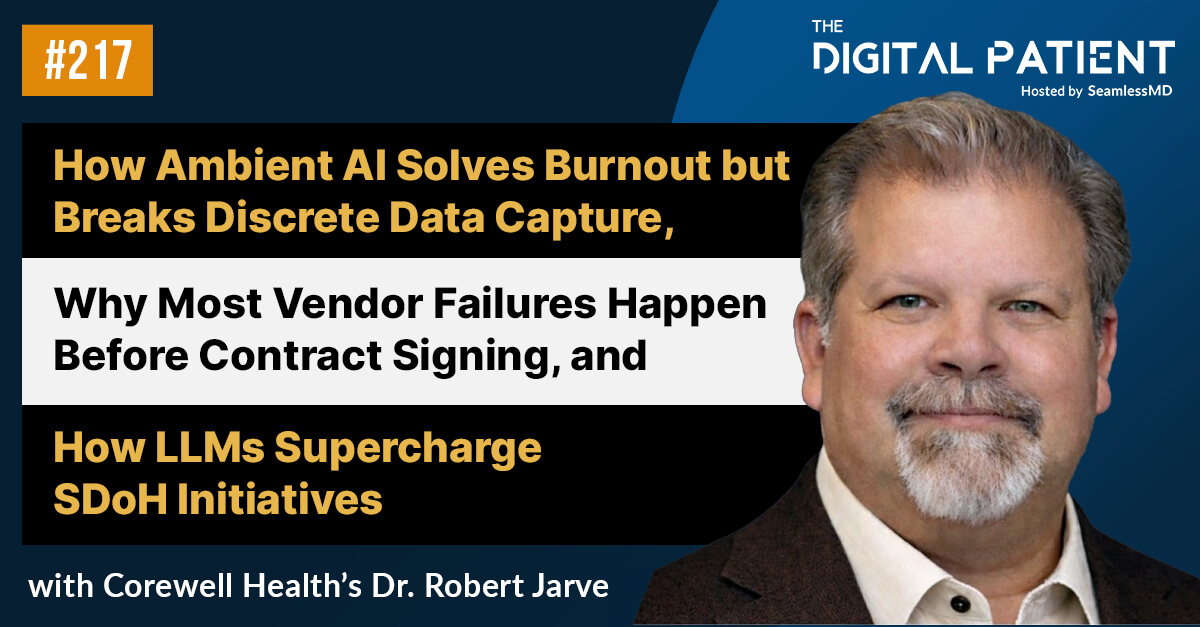Subscribe on: RSS | SPOTIFY | APPLE PODCAST | GOOGLE | BREAKER | ANCHOR
On this episode of "The Digital Patient" podcast, hosts Alan Sardana & Dr. Joshua Liu speak with Dr. Heather Evans, Vice Chair of Clinical Research and Applied Informatics at MUSC, about "Pioneering surgical wound monitoring, The tension between innovation and security in medical informatics, Why Digital Health must integrate into existing workflows, and more..." Click the play button to listen or read the show notes below.
Audio:
Video:
Guest(s):
- Dr. Heather Evans (@heatherevansmd), Vice Chair of Clinical Research and Applied Informatics at MUSC
- Dr. Joshua Liu (@joshuapliu), Co-founder & CEO at SeamlessMD
Episode 94 - Show Notes:
[00:00] Introducing Dr. Heather Evans, Vice Chair of Clinical Research & Applied Informatics at MUSC;
[02:00] Dr. Evans shares her journey from wanting to become an eye surgeon to studying art history and Japanese in college, eventually realizing her passion for medicine and going through a post-back year to transition to her career as a surgeon;
[09:28] How Dr. Evans became passionate about improving surgical processes and patient care through innovative technology and her early adoption of minimally invasive procedures, as well as her mentorship relationships with influential figures in her field;
[17:33] Why Dr. Evans developed mPOWER for patients to monitor surgical wound recovery at home after receiving wound images via email and recognizing the challenges of patient communication in the early days of texting;
[19:30] How Dr. Evans received funding from the Comparative Effectiveness Research Program to build an app for patient wound monitoring, why she established a “skunkworks” team that worked outside the EHR system, and how this process made evident the tension between the stability, security, privacy, and zero downtime environment of medical informatics and the need to be outside the system;
[33:10] How the role of telehealth in healthcare delivery, particularly in the context of the COVID-19 pandemic has evolved and why changing reimbursement policies to make telehealth a sustainable option for continuing care is of paramount importance moving forward;
[35:22] Why Dr. Evans suggests that virtual visits can provide specialized and personalized care, particularly in situations where in-person visits are not feasible or preferred, but emphasizes the need to find the right balance between virtual and in-person interactions;
[39:19] Why Dr. Evans believes the pandemic has improved communication skills among doctors and patients and has transformed healthcare delivery;
Fast 5 / Lightning Round:
- What is your favorite book or book you’ve gifted the most?
“A Tree Grows in Brooklyn” by Betty Smith
- Who is a person–dead or alive–you’d love to meet?
"Georgia O'Keeffe"
- Would you rather have Super strength, super speed, or the ability to read people’s minds?
"Super speed! I’m a cyclist and I love to go fast!”
- What is something in healthcare you believe that others might find insane?
"Sometimes not operating is the right thing to do.”
- If you could travel back in time to any event or moment, what would it be and why?
“I would want to see my grandfather operate. He was a surgeon at a time when being a surgeon meant you took care of everybody... You were an obstetrician, you were a gynecologist, you were a pediatric surgeon, a general surgeon, etc. He was a remarkable human being and I never met him.”
.svg)










.png)
